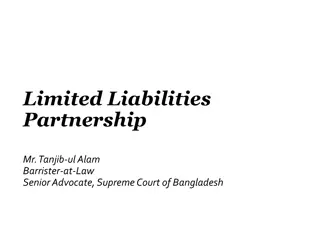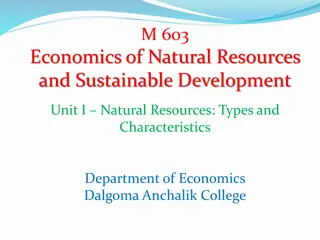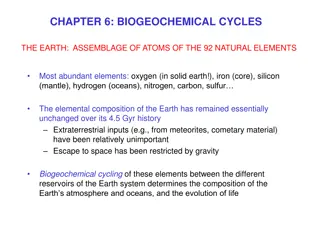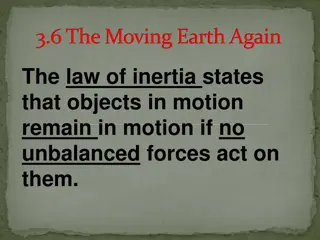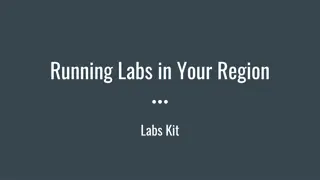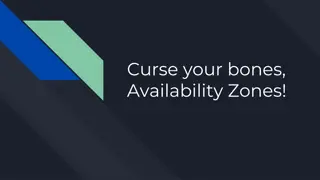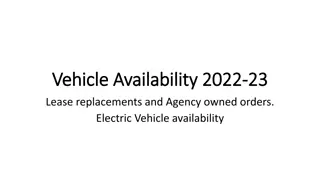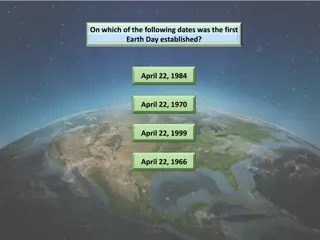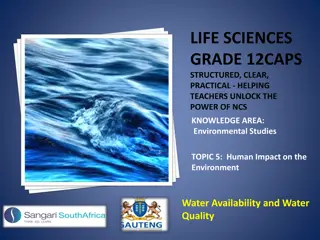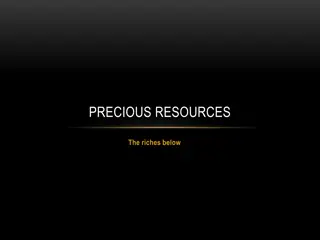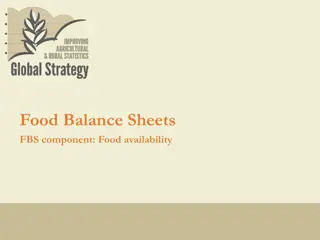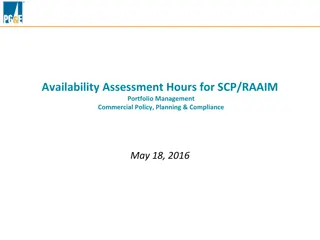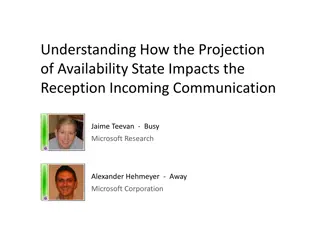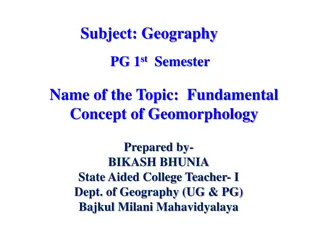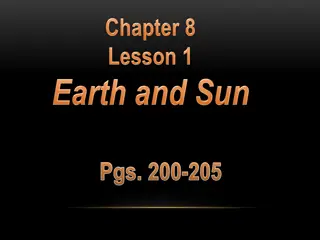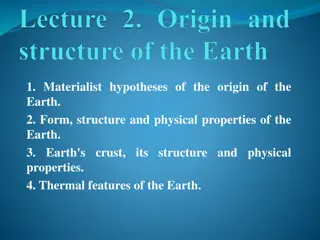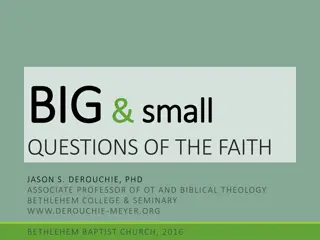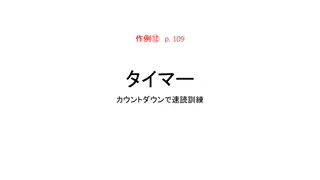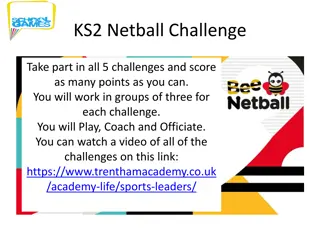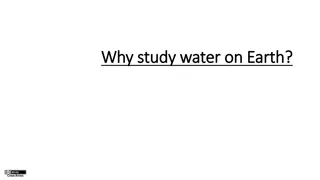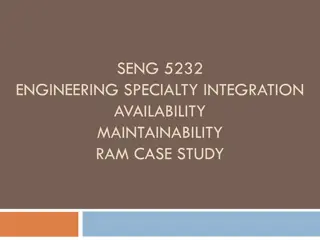Understanding Earth's Resources: The Challenge of Limited Availability
Explore the concept of limited natural resources, the classification of resources into living and non-living categories, the sustainable economic model of the Bioeconomy, and the implications of a Circular Economy. Learn how Earth's resources are created through processes like photosynthesis and the transformation of organic matter into valuable materials over millions of years. Consider the challenges posed by limited resources and the importance of sustainable resource management in the 21st century business landscape.
Download Presentation

Please find below an Image/Link to download the presentation.
The content on the website is provided AS IS for your information and personal use only. It may not be sold, licensed, or shared on other websites without obtaining consent from the author. Download presentation by click this link. If you encounter any issues during the download, it is possible that the publisher has removed the file from their server.
E N D
Presentation Transcript
Will we ever run out? Lesson 1
Lesson Objectives Understand that some resources are limited Understand that resources can be classified as living and non-living and have different renewal times Understand that living (bio-based) resources can offer a more sustainable economic model: The Bioeconomy Define the term Bioeconomy
Lesson Outcomes Summarise a statement about sustainable development Describe how Earth s resources are created Challenge: Which resources are limited and why? Sort elements into living and non-living resources Match resources to a timeline to classify their renewal times Apply knowledge to respond to the question: Will the earth run out of natural resources?
Many powerful people in business believe that there is a new challenge in the 21st century: a strong business will be one that can be successful in a world of limited resources. The competitive advantage will be with those who can think outside of the box. Janez Potocnik (2013) Towards the Circular Economy, Ellen MacArthur Foundation Do now: Read the statement In one sentence, summarise what you think Janez Potocnik means Challenge: Define the meaning of the phrase limited resources within this context
How do we make stuff? Energy Living Things Millions of years Task: Describe how resources are created (use examples) Hint: Use the diagram Challenge: Which resources are limited? Why? Mined non-bio- based products Grown bio-based products
WAGOLL: Describe how Earths resources are created All of Earth s resources can be traced back to the Sun. Plants capture the Sun s energy in a process called photosynthesis. This energy is passed on to animals and microbes when they eat plants, and from one animal to another when they eat each other! We use these grown resources to make things like food, leather shoes, wool, paper, wooden tables and so on. When plants and animals die, they decompose, and their remains are buried and pressed into the Earth s crust. Over millions of years, they transform into things like crude oil, coal, natural gas, metallic compounds and minerals. Humans mine these materials and use them to make everyday stuff, like soaps, batteries and buildings even electricity. Resources then, can be divided into two categories: those grown/living, and those mined/non-living! Challenge: Although both originally come from living things, the resources that are mined are limited. That is because they take millions of years to be created, and they may be trapped deep underground, or under oceans where it is too costly or dangerous to extract them. Because we cannot quickly grow more of these resources, we call them non-renewables. Either draw a diagram to represent this, or stick a copy of the diagram on the previous slide into your books.
Sort these images into 2 obvious piles Be ready to explain how you have sorted these images. Think about the key terms you will use in your explanation Hint: Living vs Non-Living Grown vs Mined Renewable vs Non- Renewable
Arrange your images along a timeline, to represent how long they take to create (Don t worry about specific dates) Seasonally Monthly Daily 300 million years ago
Seasonally Monthly Daily ~300 million years ago
But what do we use these resources for? And how do humans make money from them?
Will the Earth ever run out of natural resources? Sentence starters: I think that the Earth will not run out of resources because or I think that the Earth will run out of resources because Success Criteria: Use the RAG rating Use your timeline Use the source materials Write a short paragraph Use the challenge words Challenge words: non-renewable non-sustainable replace circular renewable economy linear organic sustainable fossil fuels bio-resource
Humans have become very reliant on crude oil for products and energy but as we have discovered, they will eventually run out! Also, when we use and process crude oil and other fossil fuels, it releases CO2 into the atmosphere. This is one of the leading causes of climate change. It is essential we find alternative ways to make products and services that don t rely on fossil fuels, whilst reducing our overall consumption! Fossil fuel consumption 1000 2000 3000 Past Future Present (Living off the Land) (Living off the Land) (Reliance on Fossil Fuels)
FOST Facts what 5 facts did you learn? Opinions what are your opinions on the video? Surprises what 5 things surprised you? Take Further what do you want to know more about? F O S T
Finally Many powerful people in business believe that there is a new challenge in the 21st century: a strong business will be one that can be successful in a world of limited resources. The competitive advantage will be with those who can think outside of the box. Janez Potocnik (2013) Towards the Circular Economy, Ellen MacArthur Foundation We started by reading this statement. Read what you originally wrote. Has your answer and understanding changed? And Will we ever run out?



